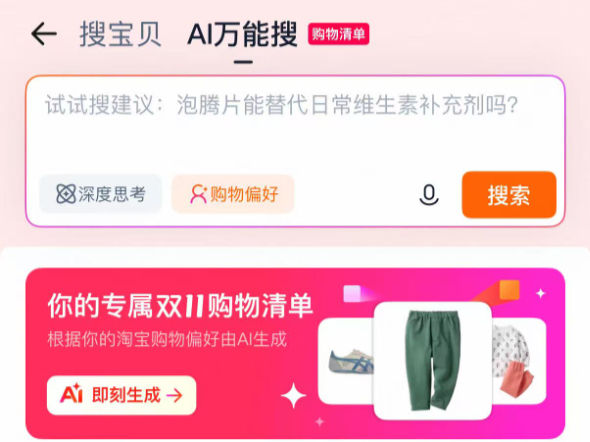XIAOHONGSHU DECIDES TO ADD E-COMMERCE LIVE STREAMING - AN INEVITABLE MOVE IN COMMERCIALIZATION
- Double V

- Dec 9, 2019
- 3 min read
Just one month before 2020, RED/Xiaohongshu announced they will launch a content producer plan and add e-commerce live streaming feature and a paid promotion tool called “CHIPS (薯条)”. This is a big step of commercialization since the platform launched the influencer platform earlier this year.

XHS’S COMMERCIALIZATION JOURNEY
The commercialization seems an inevitable move of XHS. Let’s review XHS’s big moves this year.
Jan - Launched the influencer platform
Mar - Launched brand account platform and CPC advertising system
May - Released new rules towards brands, KOLs and MCN
July - Total registered users 300 million; MAU 100 million. Pulled off from APP store because of illegal content
Oct - Back in APP store
Nov - Announced the launch of content producer plan including adding new features like e-commerce live streaming and paid promotion tool “CHIPS (薯条)”.
Many people see this as an evolvement of XHS’s social commerce. XHS started in 2013 as a social community. 2 years later they started to build self-operate shop “福利社” and their own warehouses all over the world. In 2017, XHS added 3rd party shop and started to allow brands to open flagship stores. XHS was focusing on cross border e-commerce, trying to position themselves as a platform where people can find overseas niche products. Last year they were trying to change the positioning to a lifestyle content platform and add more different categories and Chinese local brands.
However, the e-commerce part was not doing very well recently. According to a latest report from iimedia, XHS only has 4.8% market share in China cross border e-commerce, compared to a combination of Kaola and Tmall Global’s 52.1% in Q3 this year. This may be the reason why XHS shifted the focus to community and content again this year.

After launching a series of new features allowing brands to buy sponsored ad and work with KOLs directly, there were news last month that XHS has started to gain profit recently. Then it’s the announcement of adding e-commerce live streaming.
WHY DID XHS DECIDE TO ADD E-COMMERCE LIVE STREAMING?
XHS tested the live streaming function in June, but it was not officially launched. After this initial trial, they started to push vlog and longer video (the limitation of a video length was changed from 60 seconds to 300 seconds). In the past year, XHS’s video posts increased by 265% monthly, and vlogs received 100 million view per month. It’s time to explore more.

Pushing vlog is an important preparation for launching live streaming function, because vloggers are more experienced in video production and are more capable in doing live streaming.
Another important reason is e-commerce live streaming is one of the hottest trends on many China social media platforms. During this year’s 11.11, Taobao live streaming led to more than 20 billion revenue. Short video platforms like Douyin and Kuaishou have both integrated e-commerce live streaming. To compete with others, adding e-commerce live streaming has become a must.
With 300 million users, thousands of influencers and 10000+ brands, XHS needs to find a way to better serve all parties. E-commerce live streaming allows brands to sell directly through influencers and influencers will get a commission, benefiting both.
WHAT’S UNIQUE ABOUT XHS’S E-COMMERCE LIVE STREAMING?
XHS is famous for seeding and UGC. This year XHS is pushing more lifestyle content with more different categories (not only beauty and fashion, but also travel, food, home & living etc.). This is an advantage compared to other platforms.
One of the most important factors pushing people to buy during live streaming is low price or exclusive discounts. On Taobao, live streaming helps brands sell but many brands are actually losing money. XHS’s seeding community may be able to push more niche brands or high value products. This is one unique point of XHS’s e-commerce live streaming. Brands may be able to have different focus on different platforms. For example, push best sellers with biggest discount on Taobao, but long-tail products on XHS.
WILL THE COMMERCIALIZATION SUCCEED?
The platform needs to make money, but also needs to maintain the community’s authenticity and users stickiness. If it’s flood with advertisements and sponsored posts, then it’s just becoming another Weibo. In order to avoid this, XHS implemented the most strict rules to both influencers and brands, trying to control the quantity and quality of ads that each user sees.
For influencers, everything will be more standardized. Big influencers backed by MCN will get more exposure, yet small independent influencers may not be able to grow quickly as before. For regular users, more ads and less genuine content. The commercialization will definitely damage the community.
How to find a balance, how to improve the algorithm and the rules to better work with new features are still what XHS needs to figure out.
FINAL ADVICE TO BRANDS
1. Keep up with the changing rules
2. Be ready for long-term investments but review constantly



Comments